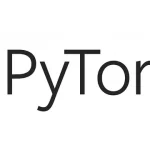
AI in Academia: Tools and Applications
December 18, 2024Artificial intelligence (AI) is revolutionizing countless industries, and academia is no exception. From accelerating literature searches to refining academic writing, AI tools are now integral to the academic landscape. This blog post explores the transformative role of AI in academia, focusing on its applications, ethical implications, and potential to reshape education and research.
The Evolution of AI in Academia
AI has come a long way since its formalization as a field in 1956. Over the decades, it has evolved from a theoretical concept to a suite of powerful tools. Breakthroughs in machine learning, neural networks, and natural language processing (NLP) have propelled AI into practical applications across industries, including higher education. Today, AI tools are designed to assist researchers and educators in managing the complexities of academic work efficiently.
Key Concepts in AI
Before diving into AI’s applications in academia, let’s review some foundational concepts:
- Artificial Intelligence (AI): The overarching field focused on creating systems capable of tasks that traditionally require human intelligence.
- Machine Learning: A subset of AI where algorithms learn from data to make predictions or decisions.
- Neural Networks: Models inspired by the human brain, often used in image recognition and NLP tasks.
- Natural Language Processing (NLP): A branch of AI that enables machines to understand, interpret, and generate human language. Tools like GPT-3, GPT-4, and ChatGPT are prime examples.
AI Tools in Academia: Transforming Research and Education
AI tools in academia can be broadly categorized into three primary application areas:
1. Enhancing Literature Searches
Traditional literature searches often require time-intensive keyword queries, but AI tools significantly streamline this process:
- Consensus, Elicit, and Litmaps: Employ semantic search and citation analysis to identify relevant articles and map their interconnections.
- Scite and Semantic Scholar: Provide comprehensive databases augmented with AI for contextual search, helping users find evidence and thematic relationships.
- These tools analyze vast repositories of academic content, allowing researchers to uncover insights more efficiently.
2. Analyzing Research Articles
Reading and understanding complex research articles can be overwhelming. AI tools simplify this process by summarizing and extracting key information:
- ChatPDF, Explain Paper, and Scholarcy: Automatically generate summaries, highlight insights, and offer interactive interfaces for deeper exploration.
- Lateral AI and Unriddle: Facilitate searching within documents, organizing findings, and analyzing custom datasets.
- These tools save time while making dense academic material accessible to broader audiences.
3. Improving Academic Writing and Editing
Academic writing demands precision and clarity. AI-powered tools provide invaluable assistance in enhancing the quality of writing:
- Jenni.ai, Paper Pal, and Quillbot: Improve grammar, coherence, and adherence to writing standards.
- Trinka and Writefull: Specifically designed for academic and technical writing, helping non-native English speakers enhance language quality.
- These tools ensure that academic texts meet rigorous standards and effectively communicate complex ideas.
AI Tools for Literature Search
| Tool | Description |
|---|---|
| Inciteful | A free, open-source research tool using citations to explore academic literature. Features include a literature connector for interdisciplinary studies and Zotero integration. Currently offers two tools, with more in development. |
| Elicit | An AI-powered research assistant that uses language models to find papers, even with imperfect keywords. It supports summarization, key information extraction, and citation manager integration. Available for free. |
| Laser AI | Designed for systematic reviews, especially Living Systematic Reviews. It offers semi-automated data extraction to save time while maintaining quality, with robust security and compliance standards. |
| Litmaps | Streamlines literature review by generating visual citation maps. Helps find overlooked articles, stay updated on new publications, and enhance collaboration. Popular among PhD candidates and universities. |
| Research Rabbit | Simplifies literature search with personalized recommendations, interactive visualizations, and collaboration tools. Integrates with citation managers and is free for researchers. |
| Consensus | An AI-powered search engine that provides evidence-based answers from peer-reviewed research. Extracts key findings and presents them in an ad-free, digestible format. |
Apps for Literature Search
| Tool | Description |
|---|---|
| System Pro | AI-powered tool synthesizing peer-reviewed research for health and life sciences. Provides transparent citations, visualizations, and contextual recommendations. Built on proprietary architecture for speed and reliability. |
| Scite.ai | Helps users search millions of research articles, find competing evidence, and summarize content. Assists in writing tasks and locating sources for specific statements. |
| Semantic Scholar | A free tool providing access to a vast database of scientific literature. Includes Semantic Reader, which enhances reading with additional context and accessibility features. |
Apps for Analyzing Research Articles (Papers)
| Tool | Description |
|---|---|
| Chat PDF | Enables conversational interaction with academic papers. Users can ask questions about uploaded PDFs and receive real-time answers. |
| Explain Paper | Simplifies dense academic language by allowing users to upload papers, highlight text, and receive explanations. |
| Lateral AI | Offers features like text search, findings organization, and document sharing. Helps organize research more effectively. |
| Open Read | Provides AI-powered interactive summaries and promotes open access. Still in early development with limited topic coverage. |
| Scholarcy | Summarizes scholarly content, extracts structured data, and creates flashcards. Supports collaborative notetaking and browser extensions for summarization. |
| SciSpace Copilot | An all-in-one research platform with metadata from 200M+ papers and 50M+ PDFs. Automates repetitive tasks and enhances discovery. |
| Unriddle | Simplifies complex topics with summaries and Q&A capabilities. Can create custom AI for specific document datasets. |
Tools for Academic Writing and Editing
| Tool | Description |
|---|---|
| Jenni.ai | Offers AI-assisted autocompletion, paraphrasing, and citation features. Supports multiple languages with a built-in plagiarism checker. Desktop-only application. |
| Paper Pal | An AI tool that checks clarity, coherence, and compliance with journal standards. Provides manuscript improvement suggestions. Certified for ISO/IEC 27001 compliance. |
| Quillbot | Includes a grammar checker, paraphraser, and summarizer. Helps non-native English speakers improve articulation and create concise summaries. |
| Trinka | Focused on academic and technical writing. Ensures clarity and coherence while adhering to academic standards. |
| Wisio.app | Simplifies writing with personalized suggestions, citation extraction, and language correction. Offers free and paid plans, with future features like reference management and journal templates. |
| Writeful | Provides language feedback and editing support for academic texts, helping non-native speakers improve the quality of their manuscripts. |
Ethical Considerations and Challenges
As AI becomes more integrated into academia, ethical challenges emerge:
- Authenticity: Academics must clearly delineate their original work from AI-assisted outputs.
- Bias: AI models trained on biased datasets can inadvertently perpetuate inequalities in research.
- Fraudulent Practices: Tools like ChatGPT, while useful, can also be exploited to create fraudulent papers, raising concerns about academic integrity.
- Ethical Frameworks: Institutions must establish guidelines to ensure responsible AI use.
A human-centered AI (HCAI) approach is key, emphasizing that AI should complement human capabilities and maintain transparency and agency. This aligns with digital humanism, which prioritizes creativity and individuality in the digital age.
The Future of AI in Academia
AI’s potential to reshape academia is immense, spanning various domains:
- Learner-Facing Tools: AI-powered personalized instruction and interactive learning platforms can enhance student engagement and motivation.
- Teacher-Facing Tools: From automated assessments to adaptive learning platforms, AI can support educators in streamlining their work.
- System-Facing Tools: Higher education institutions can use AI for administrative tasks such as enrollment management and resource allocation.
By integrating AI thoughtfully, academia can evolve into a more efficient, accessible, and innovative ecosystem.
Conclusion
AI is no longer a futuristic concept but an active participant in academia’s transformation. From literature searches to academic writing, AI tools empower researchers and educators to work smarter, not harder. However, their integration must be balanced with ethical considerations to preserve the integrity of academic work.
As AI continues to evolve, it is essential for educators and researchers to stay informed about its capabilities and limitations. By embracing AI responsibly, academia can unlock unprecedented opportunities for innovation, efficiency, and collaboration.
Reference
Pinzolits, R. (2024). AI in academia: An overview of selected tools and their areas of application. MAP Education and Humanities, 4, 37-50.


















